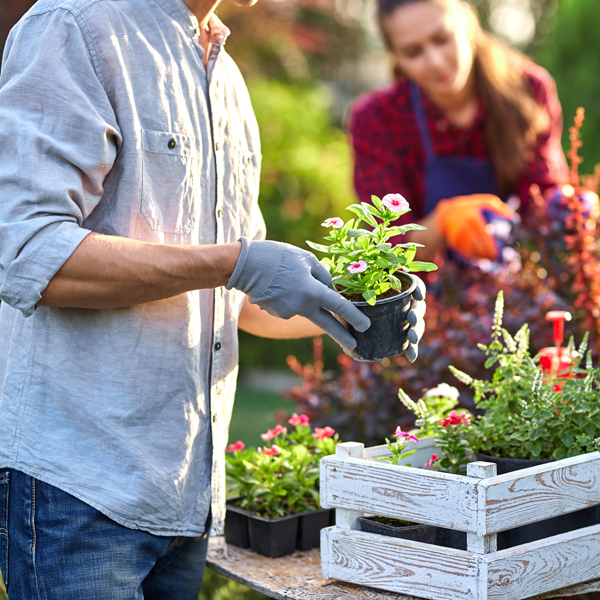Unlocking the Conveniences of Horticulture: A Detailed Check Out the Different Types and Their Influence On Well-Being
Discovering the complex benefits of gardening exposes a spectrum of practices that significantly boost individual health. From veggie and natural herb gardens to container and elevated bed setups, each type uses distinct benefits that expand beyond plain growing. These activities not only foster physical health and wellness with active involvement yet also add to psychological health by easing tension and encouraging mindfulness. As we check out these varied horticulture methods, it comes to be apparent that their influence can reverberate on individual, social, and ecological degrees, prompting a more detailed take a look at how these links create a natural story of holistic health and wellness.
Kinds Of Gardening

Flower gardening, an additional popular group, highlights the aesthetic appeal of grown blooms. This kind can improve landscapes and advertise biodiversity by drawing in helpful pollinators. In a similar way, natural herb horticulture includes growing fragrant and cooking plants, contributing both to food preparation and natural remedies.
Container gardening deals convenience, allowing people with restricted area to participate in horticulture by utilizing pots and planters. This method is particularly prominent in metropolitan settings. Raised bed gardening, on the various other hand, entails producing raised plots that enhance soil drain and accessibility, making it much easier for garden enthusiasts to manage their plants.
Lastly, area horticulture fosters partnership among people in common areas, promoting social communication and collective responsibility. Each kind of horticulture offers unique objectives and deals with various choices, making gardening a versatile activity that can be tailored to specific demands and environments.
Mental Health And Wellness Advantages
Participating in different sorts of gardening not only generates concrete incentives such as fresh produce and lovely flowers however likewise offers considerable mental wellness advantages. Research indicates that horticulture can be an effective tool for reducing stress, anxiousness, and clinical depression. The act of often tending to plants and cultivating a garden fosters a feeling of function and achievement, which can boost general psychological well-being.
Furthermore, gardening encourages mindfulness, as it needs individuals to focus on the here and now minute, whether it be growing seeds or supporting development. This mindfulness method can bring about lowered rumination and boosted mood security. The exposure to native environments during gardening has also been connected to improved cognitive functioning and reduced sensations of fatigue.
Social interaction plays a crucial function in mental health and wellness, and area horticulture campaigns give chances for people to get in touch with others, promoting a feeling of belonging. The common experience of gardening can grow friendships and support networks, additionally reinforcing emotional resilience.
Physical Wellness Advantages
Several people may not realize that gardening additionally offers significant physical health benefits. Participating in horticulture activities calls for a series of physical motions, consisting of bending, training, excavating, and growing, which jointly add to enhanced strength, flexibility, and endurance. These actions can improve cardiovascular health by promoting an elevated heart rate, thereby decreasing the threat of heart problem.
Additionally, gardening can work as a moderate-intensity workout, aiding people achieve recommended physical task degrees. Researches indicate that normal engagement in horticulture can burn considerable calories-- about 200-400 calories per hour, depending on the strength of the jobs carried out. Such calorie expenditure is beneficial for weight management and total metabolic health.
Furthermore, exposure to sunshine throughout gardening can help with the synthesis of vitamin D, which plays a necessary duty in preserving bone health and wellness and sustaining immune function. Furthermore, the act of horticulture frequently includes functioning with soil, which has actually been linked to potential psychological and physical health benefits as a result of the visibility of valuable bacteria. Gardening.
Social Connections Via Horticulture
The common elements of gardening foster significant social connections amongst people. browse around this web-site Area gardens, particularly, function imp source as dynamic hubs where individuals from diverse backgrounds integrated, cultivating not only plants but also relationships. These shared spaces motivate collaboration, allowing individuals to trade knowledge, skills, and resources, thus enhancing their horticulture experience and promoting a feeling of belonging.
Involvement in horticulture tasks typically results in the development of relationships and assistance networks. Individuals regularly join for usual objectives, such as growing seasons, harvest celebrations, or instructional workshops, which reinforce social connections and develop a feeling of neighborhood. Such communications can reduce feelings of isolation and enhance mental wellness, as individuals find friendship and sociability in common endeavors.

Ecological Influence of Gardening
Gardening dramatically contributes to environmental sustainability in numerous ways. Home yards supply vital habitats for numerous varieties, including pollinators such as and butterflies, which are important for ecosystem health.

Additionally, yards play an essential function in water conservation. Tactical landscapes, consisting of indigenous plants and xeriscaping, reduce water usage and avoid overflow, therefore safeguarding neighborhood her explanation rivers from pollution.
Verdict

Finally, gardening works as a multifaceted activity that improves wellness throughout various domains. The diverse types of horticulture-- including veggie, flower, herb, container, and increased bed-- add to mental and physical health, foster social links, and promote ecological sustainability. By taking part in horticulture practices, people can experience improved lifestyle while likewise sustaining area bonds and environmental health. Inevitably, the holistic benefits of gardening emphasize its significance as an essential aspect in enhancing general wellness.